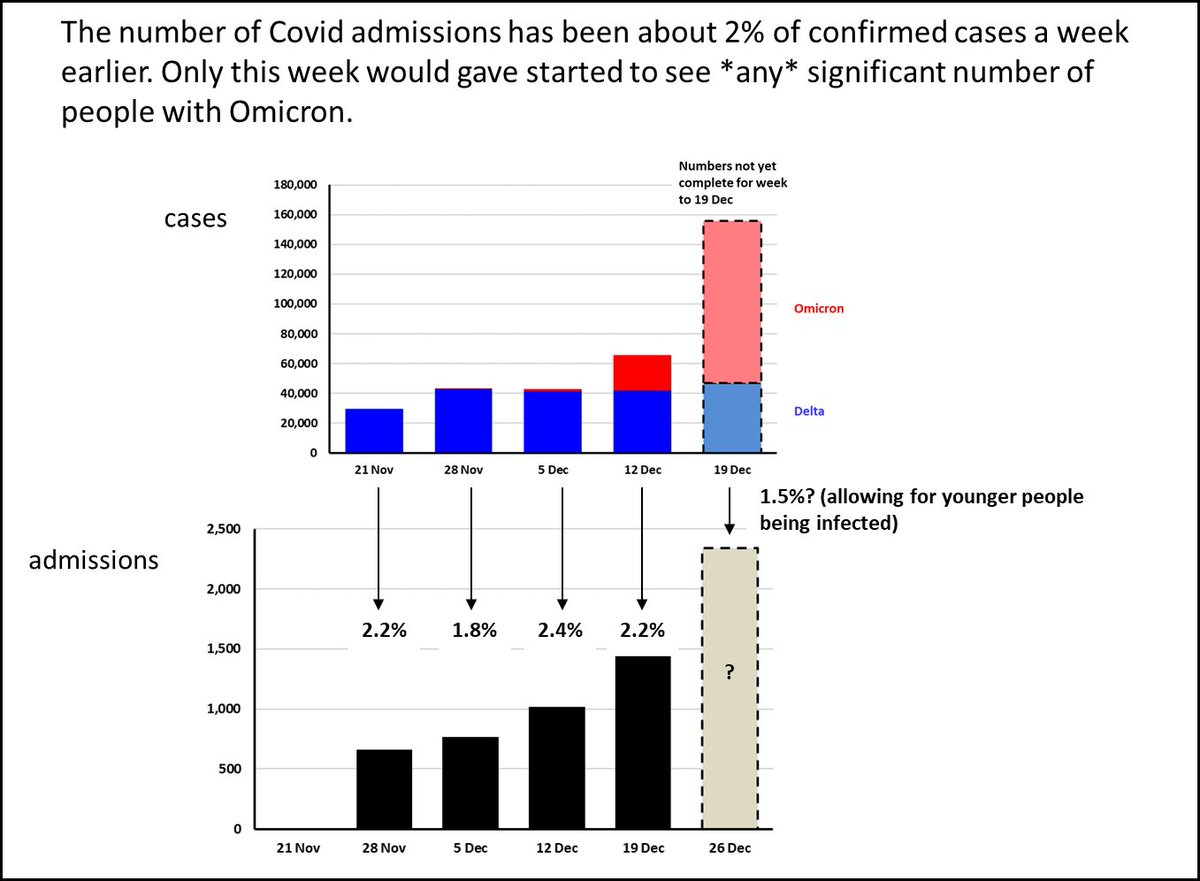THREAD on cases, hospital admissions and why so many scientists & NHS leaders are worried.
Case study of London - and what is behind the alarm!
1/10
Case study of London - and what is behind the alarm!
1/10

The key bit is that it takes about 10-14 days from infection to needing hospital. And if you have symptoms, you'll probably test positive 4-7 days into infection.
So there's roughly a week from testing positive to becoming a hospital admission. 2/10
So there's roughly a week from testing positive to becoming a hospital admission. 2/10

So - cases in London have risen *very steeply* - but *mainly* in the last week. And only in the most recent week has Omicron been dominant.
But cases to 19 Dec (incomplete!) are already more than double previous week. 3/10
But cases to 19 Dec (incomplete!) are already more than double previous week. 3/10

If we look at Covid hospital admissions to London up to 19 Dec we see a more modest rise - but that's largely because they do *not* reflect last week's high numbers - it's too soon! 4/10 

If we line up admissions under cases a week earlier we can see they've been very consistently about 2% of confirmed cases. From now on, most admissions will be Omicron.
*If* it's not any milder, then that 2% ratio should keep holding. 5/10
*If* it's not any milder, then that 2% ratio should keep holding. 5/10

Now - in fact most cases in week to 19 Dec have been younger adults. So let's reduce hospitalisations a bit to 1.5% (note, might still be too high). But even that still leads to a large jump *next week*. 6/10 

And there'll be much more intergenerational mixing over Christmas. What happens to cases then? Esp with Omicron now dominant?
And admissions the first week of January? Will they double again? more? 7/10
And admissions the first week of January? Will they double again? more? 7/10

If weekly admissions double just *twice* more from w/e 19 Dec (1.5K), we are back at last January peak in London (6K). We're likely to get a chunk to 1st double next week.
What is scaring people is that with Christmas mixing there is no real reason to think they won't go⬆️ 8/10
What is scaring people is that with Christmas mixing there is no real reason to think they won't go⬆️ 8/10
Omicron would have to be a *lot* milder to change this. Older adults more likely to need hospital have been boosted for a while - their boosters won't change hospitalisations over next few weeks.
Cases in London already going up in older adults. 9/10
Cases in London already going up in older adults. 9/10

So we've seen cases sky rocket in London this week. We know that they are likely to spread to older adults more over Christmas. Admissions will follow.
Hospitals already struggling with staff who have covid & rest are exhausted.
NHS is sounding the alarm for good reason. 10/10
Hospitals already struggling with staff who have covid & rest are exhausted.
NHS is sounding the alarm for good reason. 10/10
• • •
Missing some Tweet in this thread? You can try to
force a refresh























